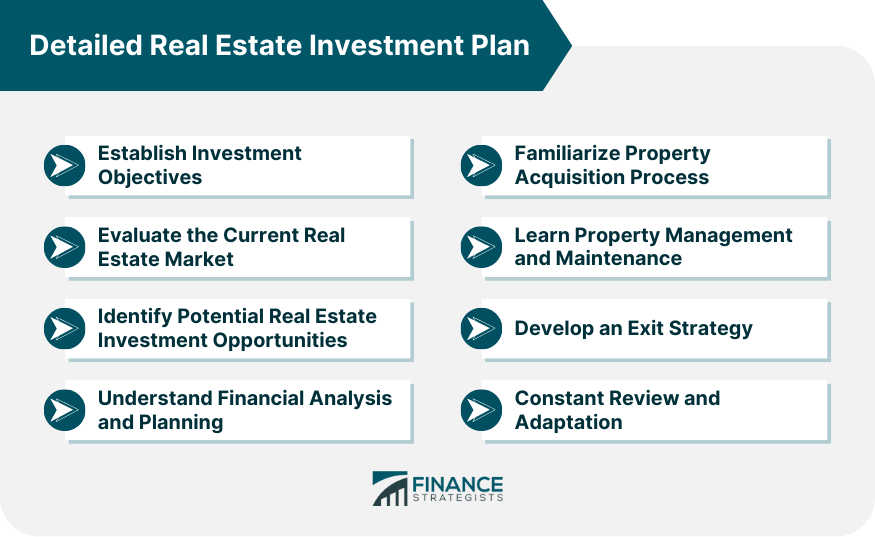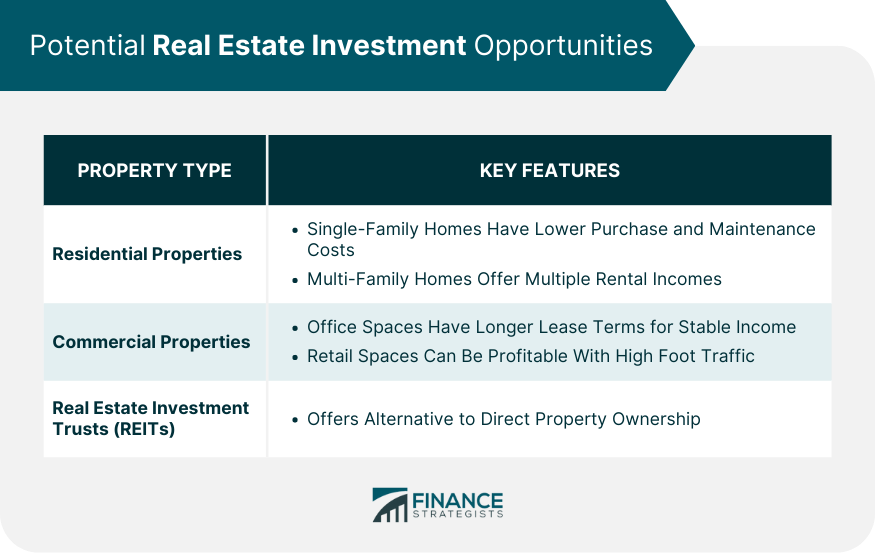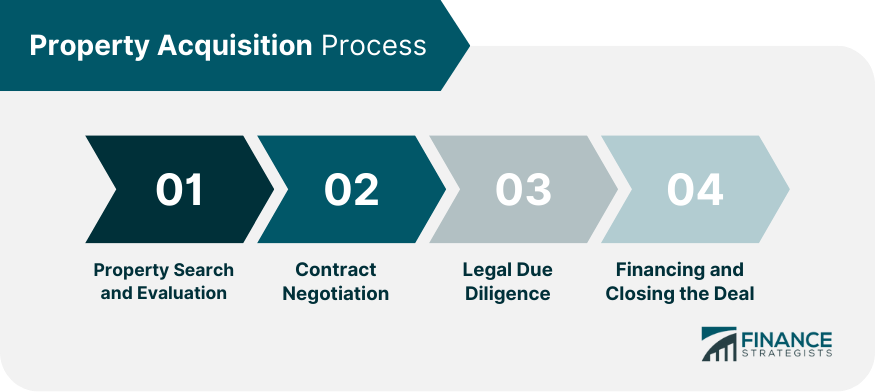Real estate investment is an excellent avenue for wealth creation. It involves purchasing properties with the expectation that their value will increase over time, generating a profitable return either through rental income or eventual resale. It presents an exciting opportunity for both financial growth and diversification of investment portfolios, setting it apart from other investment types, such as stocks and bonds. A detailed investment plan provides a roadmap to success in real estate. It helps investors identify their financial goals, understand the real estate market, determine potential investment opportunities, and implement strategies to maximize returns. Without a well-structured plan, investors risk making impulsive decisions, leading to potential losses or missed opportunities. Defining clear, achievable financial goals is the foundation of any successful investment plan. Investors should consider their long-term objectives, such as retirement savings or income generation, and short-term goals, like property acquisition or renovations. Goals should be SMART - Specific, Measurable, Achievable, Relevant, and Time-bound. Real estate investment should align with an investor's overall financial strategy. It's essential to consider how investing in property fits into one's broader wealth management plan, including retirement, insurance, and estate planning. For instance, real estate can provide a regular income stream for retirees or can be a crucial asset in an individual's estate plan. Every investment comes with inherent risks. Understanding your risk tolerance – how much risk you're willing to take on to achieve your financial goals – is crucial. Risk tolerance varies between individuals, influenced by factors such as financial capability, investment horizon, and personal comfort with uncertainty. Investing in the right market at the right time can make a significant difference in investment returns. Emerging markets, areas experiencing growth due to factors like economic development or population increases, often provide exciting investment opportunities. Conversely, investors should be wary of declining markets that could lead to property devaluation. Understanding market trends is key to informed decision-making in real estate investment. Trends such as property price movements, rental yields, vacancy rates, and construction activity provide insights into market health and potential future direction. Economic indicators such as GDP growth, employment rates, and interest rates have substantial impacts on the real estate market. Positive economic growth typically correlates with a strong real estate market as consumers have more income to spend on housing, while high unemployment or interest rates can dampen market activity. Single-family homes are a popular choice for real estate investors, particularly those starting their investment journey. These properties tend to have lower purchase prices and maintenance costs than other real estate types and can provide steady rental income. Multi-family homes, such as duplexes or apartment buildings, can generate significant income. Though these properties often require more significant initial investment and management, they offer the advantage of multiple rental incomes from a single property, mitigating the impact of vacancies. Office spaces present a lucrative investment opportunity, particularly in thriving business hubs. These properties often have longer lease terms, leading to a more stable income. However, investors should consider factors such as the economic climate and the rise of remote work, which may influence office space demand. Investing in retail spaces can be profitable, especially in areas with high foot traffic. However, the investment is subject to the health of the retail industry and consumer spending trends. For investors who prefer not to deal with the direct purchase and management of properties, Real Estate Investment Trusts (REITs) offer an alternative. REITs are companies that own, operate, or finance income-producing properties. Investors can buy shares of REITs on the stock exchange, offering a way to invest in real estate without owning physical properties. Most investors utilize mortgage loans for purchasing real estate. Traditional lenders offer various loan products, each with its unique features and requirements. An understanding of your financial position can help determine the best mortgage option for you. Hard money loans, provided by private investors or companies, are short-term, high-interest loans typically used for investment properties. They are a good option for investors who need quick financing or have been denied traditional financing. However, due to their high costs, they should be approached with caution. Down payments significantly impact your mortgage and the overall cost of the property. A larger down payment reduces the loan amount and potentially lowers the interest rate, ultimately resulting in a lower overall cost. These are expenses over and above the property's price incurred during a real estate transaction. They include loan origination fees, title insurance, appraisal fees, and more. If the property requires refurbishment, renovation costs can add up quickly. It's essential to budget for these expenses accurately to avoid unforeseen financial strains. Real estate investors must understand the potential cash flow a property can generate. It involves estimating the income (usually rental income) and subtracting all expenses, including mortgage payments, property taxes, insurance, maintenance, and vacancies. ROI is a critical metric that measures the probability of a profitable investment. It's calculated by dividing the net profit by the cost of the investment. A high ROI indicates a successful investment, while a low ROI may suggest the need to reevaluate the investment strategy. Finding a suitable property requires thorough research and evaluation. Consider factors like location, property condition, potential rental income, and appreciation. After identifying a potential investment, the next step is negotiating the purchase contract. The process involves agreeing on the price, terms, and conditions of the sale. Legal due diligence involves verifying the legal status of the property. It ensures there are no legal issues that could jeopardize the investment. Once the contract is signed, it's time to secure financing and close the deal. This step involves finalizing the mortgage loan, paying the down payment and closing costs, and transferring the property's title. Effective property management maximizes return on investment. A good management strategy considers factors such as pricing rents, advertising vacancies, selecting tenants, and maintaining the property. If managing the property is overwhelming, investors may hire a property management company. These companies handle day-to-day operations, including rent collection, maintenance, and tenant relations. Regular maintenance keeps the property in excellent condition, maintains its value, and keeps tenants satisfied. Managing tenants includes selecting reliable tenants, addressing their concerns promptly, ensuring timely rent payments, and dealing with lease violations. The exit strategy depends on the investor's goals. Long-term holding is ideal for those seeking steady cash flow, while short-term flipping suits investors looking for quick returns. Selling at the right time can maximize profits. Analyzing market trends and economic indicators can help determine the optimal selling time. Sometimes, changing market conditions or investor goals require converting the investment type, such as turning a rental property into a flip. Investors should regularly evaluate their properties' performance, assessing whether they meet their financial goals. Market conditions fluctuate, and successful investors adapt their strategies accordingly. This might involve selling a property, adjusting rents, or acquiring additional properties. An investment plan is not set in stone. Investors may need to modify their strategy based on changing personal financial circumstances, market conditions, or investment performance. A detailed real estate investment plan provides a roadmap to successful property investment. It entails setting clear financial objectives, understanding the real estate market, identifying investment opportunities, carrying out detailed financial analysis, proceeding with property acquisition, managing and maintaining properties, and developing an exit strategy. Regular review and adaptation of the plan are also crucial. Real estate investment is a long-term endeavor that requires patience and persistence. Market dynamics change, unexpected issues can arise, and there are always new things to learn. Success in this field requires an unwavering commitment and a willingness to continuously educate oneself. Embarking on a real estate investment journey is an exciting venture. While challenges will arise, the rewards can be substantial. Implement the detailed real estate investment plan, stay committed, adapt as necessary, and enjoy the journey of growing your wealth through real estate.Overview of Real Estate Investment

Establish Investment Objectives
Set Clear Financial Goals
Align Real Estate Investment With Overall Financial Plan
Understand Risk Tolerance
Evaluate the Current Real Estate Market
Identify Emerging and Declining Markets
Analyze Market Trends
Evaluate the Impact of Economic Indicators on the Real Estate Market
Identify Potential Real Estate Investment Opportunities
Residential Properties
Single-Family Homes
Multi-Family Homes
Commercial Properties
Office Spaces
Retail Spaces
Real Estate Investment Trusts (REITs)

Understand Financial Analysis and Planning
Financing Options
Mortgage Loans
Hard Money Loans
Estimate Total Initial Investment
Down Payment
Closing Costs
Renovation Expenses
Project Future Cash Flows
Evaluate Return on Investment (ROI)
Familiarize Property Acquisition Process
Property Search and Evaluation
Contract Negotiation
Legal Due Diligence
Financing and Closing the Deal

Learn Property Management and Maintenance
Develop a Management Strategy
Select a Property Management Company
Regular Property Maintenance
Tenant Management
Develop an Exit Strategy
Long-Term Holding vs Short-Term Flipping
Time the Market for Sale
Convert to a Different Investment Type
Constant Review and Adaptation
Regular Review of Property Performance
Adapt to Changes in Market Conditions
Adjust Investment Strategy as Needed
Bottom Line
Detailed Real Estate Investment Plan FAQs
A detailed real estate investment plan is a comprehensive guide outlining the process of investing in real estate, from setting financial goals to managing properties to developing an exit strategy.
A detailed real estate investment plan is crucial as it provides a roadmap to successful investing. It helps you make informed decisions, align your real estate investments with your overall financial goals, and maximize returns.
A detailed real estate investment plan includes setting clear financial goals, understanding the real estate market, identifying potential investment opportunities, conducting a detailed financial analysis, acquiring the property, managing the property, and developing an exit strategy.
There's no set rule, but it's recommended to review your detailed real estate investment plan annually or when major life or market changes occur. The regular review allows you to adjust your strategies based on changes in personal financial circumstances, market conditions, or property performance.
The first step in creating a detailed real estate investment plan is setting clear, realistic financial goals. Understanding what you want to achieve with your real estate investments will guide your subsequent decisions.
True Tamplin is a published author, public speaker, CEO of UpDigital, and founder of Finance Strategists.
True is a Certified Educator in Personal Finance (CEPF®), author of The Handy Financial Ratios Guide, a member of the Society for Advancing Business Editing and Writing, contributes to his financial education site, Finance Strategists, and has spoken to various financial communities such as the CFA Institute, as well as university students like his Alma mater, Biola University, where he received a bachelor of science in business and data analytics.
To learn more about True, visit his personal website or view his author profiles on Amazon, Nasdaq and Forbes.















